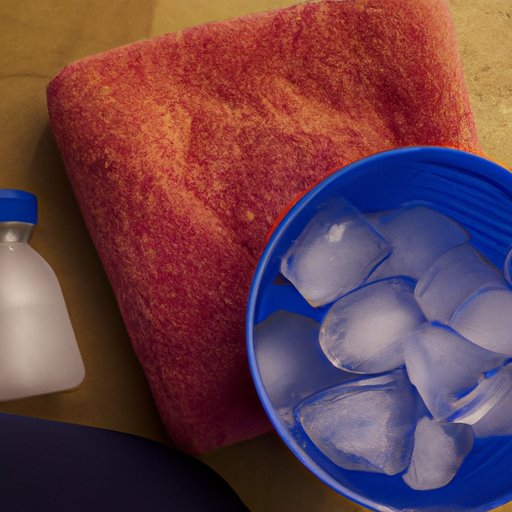Introduction
Soreness from working out is a common problem experienced by many people who exercise regularly. It can be uncomfortable and interfere with your ability to perform everyday tasks. Fortunately, there are several ways to reduce the soreness and keep it from interfering with your life.
Increase Water Intake
Water plays an important role in helping your body recover from a workout. When you exercise, your body loses fluids, which can lead to dehydration and muscle fatigue. To prevent this, it’s important to drink plenty of water before, during, and after your workout. This will help replenish lost fluids and reduce the risk of soreness.
To ensure you’re getting enough water, try to drink at least 8 glasses of water a day. You can also carry a water bottle with you while you’re exercising to make sure you stay hydrated. Additionally, drinking electrolyte-rich beverages like coconut water can help replenish lost electrolytes and reduce muscle fatigue.
Stretch After Exercise
Stretching is an essential part of any workout routine as it helps reduce muscle tension and improve flexibility. After a workout, it’s important to stretch all the major muscle groups that you’ve used during your session. This will help reduce the buildup of lactic acid in your muscles, which can cause soreness. Stretching also helps increase blood flow to the muscles, which can help speed up the recovery process.
When stretching, it’s important to hold each stretch for at least 30 seconds and to focus on deep breathing. This will help relax the muscles and increase the effectiveness of the stretch. Additionally, it’s important to stretch both sides of the body evenly to ensure that your muscles remain balanced.
Take a Warm Bath or Shower
Taking a warm bath or shower after a workout can help reduce muscle soreness. The warmth of the water helps relax the muscles and increases blood circulation, which can help reduce inflammation and speed up the recovery process. Additionally, the warm water can help reduce tension in the muscles, which can help alleviate pain.
When taking a warm bath or shower, it’s important to make sure the water isn’t too hot. Too much heat can actually be detrimental to the recovery process. Additionally, adding Epsom salt to the bath or shower can help reduce muscle soreness and inflammation.
Use Ice Packs
Ice packs can be a great way to reduce muscle soreness after a workout. The cold temperature of the ice helps reduce inflammation and numb the area, which can help reduce pain. Additionally, the ice helps slow down the movement of fluid in the body, which can help reduce swelling.
When using an ice pack, it’s important to wrap it in a towel so that it doesn’t come into direct contact with the skin. Additionally, it’s important to limit the amount of time you spend with the ice pack on the affected area to no more than 20 minutes. This will help prevent tissue damage.
Use Heat Therapy
Heat therapy is another great way to reduce muscle soreness. The heat helps relax the muscles and increase blood circulation, which can help reduce inflammation and speed up the recovery process. Additionally, the heat can help reduce tension in the muscles, which can help alleviate pain.
When using heat therapy, it’s important to make sure the heat source isn’t too hot. Too much heat can actually be detrimental to the recovery process. Additionally, it’s important to limit the amount of time you spend with the heat source on the affected area to no more than 15 minutes.
Massage Muscles
Massaging the muscles after a workout can help reduce muscle soreness. Massaging the muscles helps increase blood circulation, which can help reduce inflammation and speed up the recovery process. Additionally, massaging the muscles can help break up knots and reduce tension, which can help alleviate pain.
When massaging the muscles, it’s important to use gentle pressure and avoid massaging over any areas that are particularly tender. Additionally, it’s important to focus on specific areas for longer periods of time rather than trying to massage the entire body. This will help ensure the massage is effective.
Conclusion
Soreness from working out is a common problem, but it doesn’t have to interfere with your life. By following the advice provided above, you can reduce the soreness and get back to your regular activities. Increasing your water intake, stretching after exercise, taking a warm bath or shower, using ice packs, using heat therapy, and massaging your muscles can all help reduce muscle soreness and speed up the recovery process.
By following these tips, you can ensure that you’re able to enjoy your workouts without having to worry about soreness getting in the way. With a little bit of effort, you can get back to feeling your best in no time.
(Note: Is this article not meeting your expectations? Do you have knowledge or insights to share? Unlock new opportunities and expand your reach by joining our authors team. Click Registration to join us and share your expertise with our readers.)
